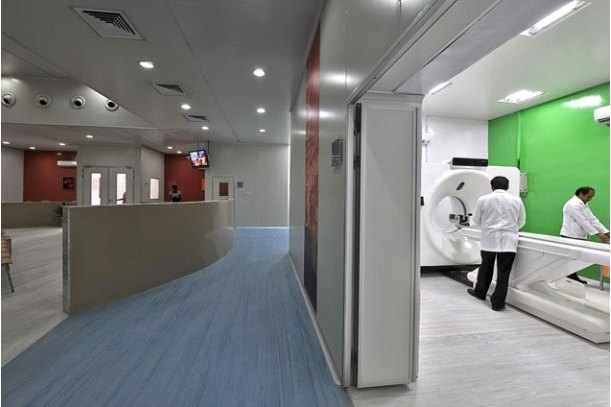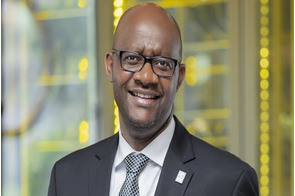Latest News
India is expanding investment in Nigeria’s healthcare

News Highlight
In 2012, about 40 percent of all visas to India from Nigeria were for medical tourism and Nigerians spent about $260 million on medical expenses in India.
Nigeria has seen its citizens spend millions of dollars on medical treatment in India due to an inadequate health delivery sector, but this is changing as the Indian government and private healthcare providers are turning to investing in Nigeria to benefit from its huge market, according to Indo-Asian News Service (IANS).
An indication of the huge numbers of Nigerians who travelled to India is reflected in the number of visas that were issued over the years.
"In 2012, about 40 percent of all visas to India from Nigeria were for medical tourism and Nigerians spent about $260 million on medical expenses in India," KPMG Africa chairman Oluseyi Bickersteth told IANS.
Indian involvement in Nigeria's healthcare delivery is gradually increasing after a lull in the 1970s when most of the Indian medical officers operating in the country left, Bickersteth said, adding the new interest in Nigeria has been bolstered by the Indian government's announcement last January to set up two specialist units for eye and cancer care.
Noting that last year, the United Nations Development Index ranked Nigeria 152 out of 187 countries in healthcare delivery, Bickersteth said: "This low ranking indicates not only the problems with infrastructure and healthcare facilities, which are poor, but also high infant mortality rates and relatively low life expectancy."
He said current gaps in the Nigerian healthcare system, like low doctor-population ratio, inadequate infrastructure, low health insurance cover, absence of internationally recognized certifications and high brain drain have forced Nigerian patients to seek medical services abroad.
"In the last few years, India has become a destination of choice for large numbers of Nigerian patients owing to its low cost, quality of healthcare, expertise in complex surgeries and no waiting time," Bickersteth said.
"Taking cue from the gaps in healthcare delivery in Nigeria, Indian healthcare players have started increasing their presence in Nigeria," he said, adding: "India has a strong trade connection with Nigeria. More than 100 Indian companies are present in Nigeria, which have made significant investment in the country. India has also been a privileged partner in Nigeria's healthcare sector," he added.
Bickersteth said India is a leading country to fulfill the medical needs of Nigeria, with Indian pharmaceutical companies playing a major role in the country's health delivery. Among the companies that are working to bring about an improvement in the sector include Chi Pharmaceuticals and Cipla-Evans Pharmaceuticals, as well as several exporting companies that are not involved locally.
In addition, he said, there are also hospitals and diagnostic centres from India that are currently operating in Nigeria, including Mecure Diagnostic Centers and Vedic Hospitals (established in Nigeria in 2013 with support from India's Manipal Health Enterprises), both in the commercial capital Lagos and Primus International Super Specialty Hospital in the capital, Abuja.
Following the success of some of the Indian companies already in Nigeria, Bickersteth said, other Indian players are planning to establish their footprint in Nigeria. This has been partly due to the efforts of the Nigerian ministry of tourism and the Indian High Commission which have organised healthcare events to strengthen the partnership in the healthcare sector between the two countries.
"Few Indian hospital chains also provide training to Nigerian doctors on specialist medical procedures, thereby improving patient care in Nigeria. For example, around 100 doctors of Abuja University Teaching Hospital were recently trained by medical experts from the Apollo Hospitals in India," Bickersteth added.
He said a number of healthcare organizations are also planning to establish hospitals in the country. For instance, First Rivers Hospital had teamed up with two Indian facilities - Ruby Hall Clinic and Trans-Medical Healthcare Limited - to provide collaborative medical services.
In addition, a group of professionals in Anambra state are planning to partner with some Indian medical specialists to establish a 200-bedded world-class hospital in Awka city.
Bickersteth said under construction is a charitable eye hospital in Lagos in collaboration with India's Indo Eye-Care Foundation and Rotary Club of Lagos-Palmgrove Estate with an investment of $2.7 million that will facilitate surgery of eye related ailments.
"The Apollo Hospital group has opened telemedicine centres in Nigeria and recently it partnered with Airtel Nigeria to provide video consultation with doctors to Airtel Nigeria's premier customers," Bickersteth said, adding the Apollo group has partnered with Sanofi for diabetes management and is planning to replicate its Apollo Sugar Clinics concept in Nigeria.
He said Fortis Malar Hospital is planning to launch telemedicine centres in Nigeria,while the Narayana Hrudayalaya Hospital is also planning to establish multi-specialty facility in Nigeria in its efforts to expand its overseas market.
Related News
Latest Blogs
- What Ould Tah’s tenure at BADEA reveals about his AfDB candidacy
- Implementation strategy crucial for the success of 12-4 education policy
- A senator’s suspension threatens the right of representation
- Tinubu’s promising revolution in infrastructure development
- Has Tinubu’s economic reform started working?
Most Popular News
- Artificial intelligence can help to reduce youth unemployment in Africa – ...
- Nigeria records $6.83 billion balance of payments surplus in 2024
- Tinubu appoints new Board Chair, Group CEO for NNPC Limited
- Tariffs stir inflation fears in US but offer targeted industry gains ...
- Soaring civil unrest worries companies and insurers, says Allianz
- CBN net reserve hits $23.1 billion, the highest in three years









